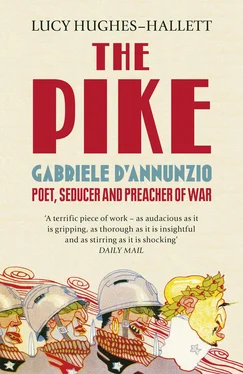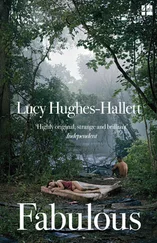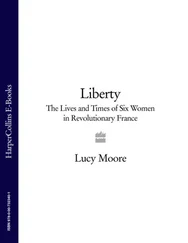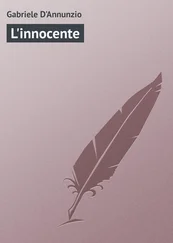THE PIKE
Gabriele d’Annunzio
Poet, Seducer and Preacher of War
LUCY HUGHES-HALLETT

COPYRIGHT
4th Estate
An imprint of HarperCollinsPublishers
1 London Bridge Street
London SE1 9GF
www.4thEstate.co.uk
This ebook first published in Great Britain by 4th Estate in 2013
Copyright © Lucy Hughes-Hallett 2013
Map © John Gilkes
Cover shows d’Annunzio, 1919 (postcard, 14 x 9cm) by Ivo Tijardović (1895–1976)
The right of Lucy Hughes-Hallett to be identified as the author of this work has been asserted by her in accordance with the Copyright, Designs and Patents Act 1988
A catalogue record for this book is available from the British Library
All rights reserved under International and Pan-American Copyright Conventions. By payment of the required fees, you have been granted the non-exclusive, non-transferable right to access and read the text of this ebook on-screen. No part of this text may be reproduced, transmitted, down-loaded, decompiled, reverse engineered, or stored in or introduced into any information storage and retrieval system, in any form or by any means, whether electronic or mechanical, now known or hereinafter invented, without the express written permission of HarperCollins ebooks.
Source ISBN 9780007213955
Ebook Edition © March 2017 ISBN: 9780007356515
Version: 2017-03-17
PRAISE
From the reviews of The Pike :
‘A magnificent portrait of a preposterous character whose life is a scarcely credible saga of ambition and outrageous exploits … His biographer has done him full justice’ FRANCIS WHEEN, Mail on Sunday
‘A bland chronology is the opposite of Lucy Hughes-Hallett’s beautiful, strange and original structure. The Pike sets out the inner life of this fascinating man in a dazzling jumble of fragments and obsessions … An extraordinarily intimate portrait of him … we feel we are inside his life … If you want to understand fascism, you must start with d’Annunzio; and if you wish to understand him, then here is your book’ DANIEL SWIFT, New Statesman
‘Hugely enjoyable … Hughes-Hallett has a great talent for encapsulating an era or an attitude with an arresting one-liner … The fact that almost 700 pages flew by bears testimony to how pleasurable and readable those pages were’ TOBIAS JONES, Sunday Times
‘A deeply evocative new biography … She is a strong match for her subject, something that so many of the women in d’Annunzio’s life were lamentably not. Her style is rich, ironic and pugnacious; she jousts willingly with him and the reader becomes a spectator of this subtle and fascinating contest’ Economist
‘Hughes-Hallett dances her way through this extraordinary life in a style that is playful, punchy and generally pleasing’ IAN BIRRELL, Observer
‘It takes courage to write a biography like this one … its exhilarating virtuosity [is] d’Annunzian in the best sense’ JONATHAN KEATES, Sunday Telegrap h
‘Engrossing and superbly written … Lucy Hughes-Hallett has written an eminently readable biography. Its strength lies in her ability to tease out and examine the strands of D’Annunzio’s complex personality in ways that continually illuminate how creativity can coexist with inhumane thought and action’ CHRISTOPHER DUGGAN, Times Literary Supplement
‘Exceptional … Hughes-Hallett has done an admirable job’ STUART KELLY, Scotsman
‘A vivid picture of the flow of ideas and inspirations in d’Annunzio, the meshing of work and character. The whole is an enthralling curiosity, much like d’Annunzio’s final epic monument to himself, the Vittoriale villa above Lake Garda’ ROBERT GORDON, Literary Review
‘[A] richly kaleidoscopic biography … In this scintillating study, full of wit and irony, she plumbs the depths of D’Annunzio’s horrible fascination’ PIERS BRENDON, The Oldie
for Lettice and Mary, with love
Contents
COVER
TITLE PAGE
COPYRIGHT
PRAISE
DEDICATION
I - ECCE HOMO
THE PIKE
SIGHTINGS
SIX MONTHS
II - STREAMS
WORSHIP
GLORY
LIEBESTOD
HOMELAND
YOUTH
NOBILITY
BEAUTY
ELITISM
MARTYRDOM
SICKNESS
THE SEA
DECADENCE
BLOOD
FAME
SUPERMAN
VIRILITY
ELOQUENCE
CRUELTY
LIFE
DRAMA
SCENES FROM A LIFE
SPEED
KALEIDOSCOPE
THE DOGS OF WAR
III - WAR AND PEACE
WAR
PEACE
THE CITY OF THE HOLOCAUST
THE FIFTH SEASON
CLAUSURA
SELECT BIBLIOGRAPHY
INDEX
ACKNOWLEDGEMENTS
NOTES
READ ON…
ALSO BY LUCY HUGHES-HALLETT
PICTURE CREDITS
ABOUT THE AUTHOR
ABOUT THE PUBLISHER
D’Annunzio – a portrait painted in 1910 by his lover, Romaine Brooks
I
ECCE HOMO
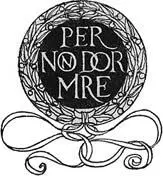
THE PIKE
IN SEPTEMBER 1919, Gabriele d’Annunzio – poet, aviator, nationalist demagogue, war hero – assumed the leadership of 186 mutineers from the Italian army. Driving in a bright red Fiat so full of flowers that one observer mistook it for a hearse (d’Annunzio adored flowers), he led them in a march on the harbour city of Fiume in Croatia, part of the defunct Austro-Hungarian Empire over whose dismemberment the victorious Allied leaders were deliberating in Paris. An army representing the Allies lay across the route. Its orders from the Allied high command were clear: to stop d’Annunzio, if necessary by shooting him dead. That army, though, was Italian, and a high proportion of its members sympathised with what d’Annunzio was doing. One after another its officers disregarded instructions. It was, d’Annunzio told a journalist later, almost comical the way the regular troops gave way, or deserted to follow in his train.
By the time he reached Fiume his following was some 2,000 strong. He was welcomed into the city by rapturous crowds who had been up all night waiting for him. An officer passing through the main square in the early hours of that morning saw it filled with women wearing evening dress and carrying guns, an image that nicely encapsulates the nature of the place – at once a phantasmagorical party and a battleground – during the fifteen months that d’Annunzio would hold Fiume as its Duce and dictator, in defiance of all the Allied powers.
Gabriele d’Annunzio was a man of vehement, but incoherent, political views. As the greatest Italian poet, in his own (and many others’) estimation, since Dante, he was il Vate, the national bard. He was a spokesman for the irredentist movement, whose enthusiasts wished to regain all those territories which had once been, or so they claimed, Italian, and which had been left irredenti (unredeemed) when Italians liberated themselves from foreign rulers in the previous century. His overt aim in coming to Fiume had been to make the place, which had a large Italian population, a part of Italy. Within days of his arrival it became evident this aim was unrealistic. Rather than admitting defeat, d’Annunzio enlarged his vision of what his little fiefdom might be. It was not just a patch of disputed territory. He announced that he was creating there a model city-state, one so politically innovative and so culturally brilliant that the whole drab, war-exhausted world would be dazzled by it. He called his Fiume a ‘searchlight radiant in the midst of an ocean of abjection’. It was a sacred fire whose sparks, flying on the wind, would set the world alight. It was the ‘City of the Holocaust’.
Читать дальше
